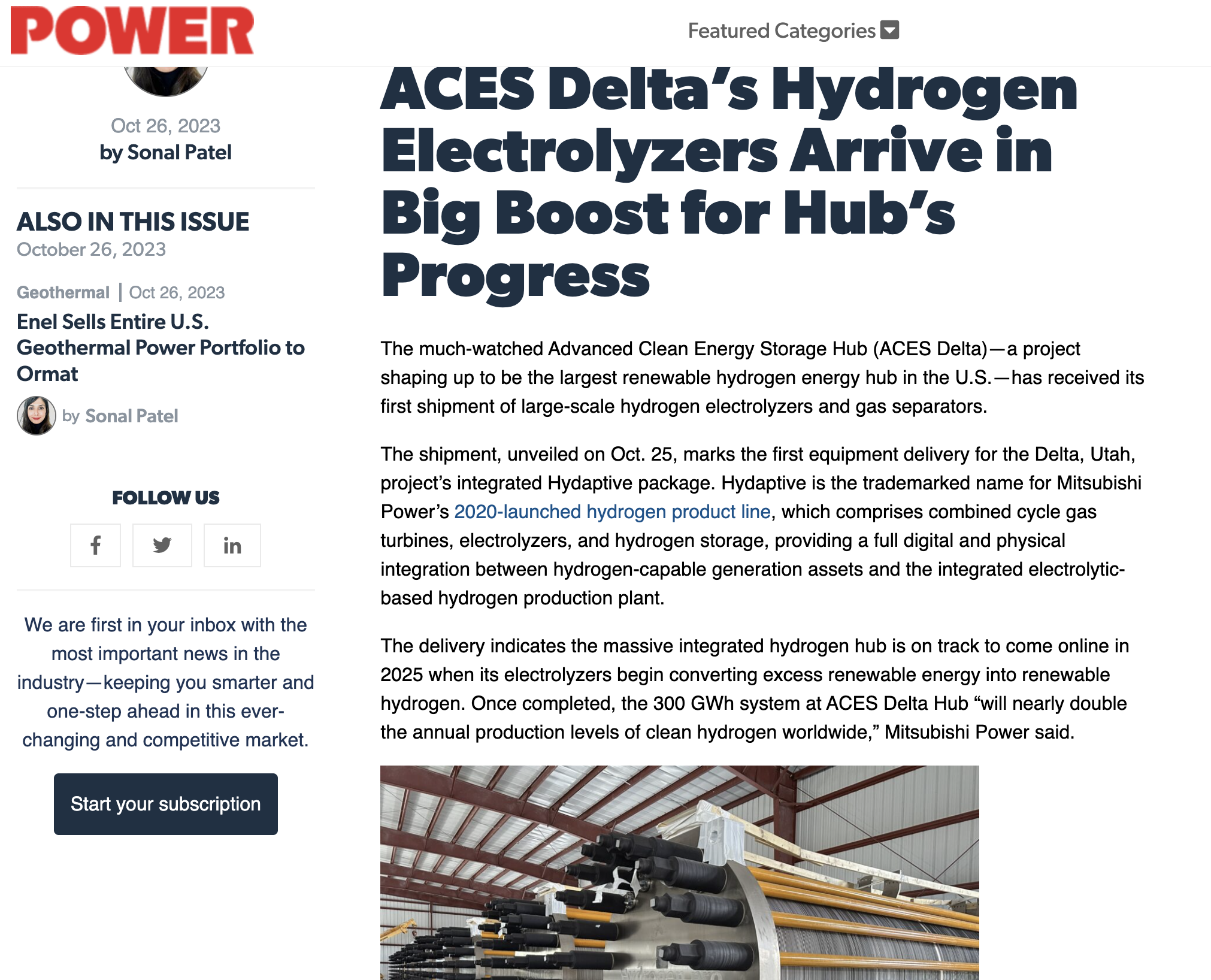ChEn 433
Class 28 Review
Erasmo
Erasmo from David Stauffer on Vimeo.
Utah Hydrogen
Study techniques
- Learning is deeper and more durable when it is effortful. Learning that’s easy is like writing in the sand, here today and gone tomorrow
- Rereading text and massed practice of a skill or new knowledge are by far the preferred study strategies of learners of all stripes, but they’re also among the least productive.
- Retrieval practice—recalling facts or concepts or events from memory—is a more effective learning strategy than review by rereading.
- Elaboration is the process of giving new material meaning by expressing it in your own words and connecting it with what you already know.
- Students who don’t quiz themselves (and most do not) tend to overestimate how well they have mastered class material).
- One of the best habits a learner can instill in herself is regular self-quizzing to recalibrate her understanding of what she does and does not know.
- From “Make it Stick, The Science of Successful Learning” by Brown, Roediger, and McDaniel

Exercise
- Write down the main topic/title of each Class
- do this without the schedule, then with it
- For each class, what were the main ideas
- outline each class
- put in the details
- what were the discussions regarding the ideas
- Do this alone, then with others
- Create your own review notes (like these slides)
- First “recall”, then look up to fill in.
Schedule
Class 1 Introduction
- energy forms
- stewardship
- human development index
- issues
- economics, resources, complexity, safety, regional, perception, politics, momentum, workforce, infrastructure
- values and tradeoffs
Class 2 Energy use
- Sectors, sources, end uses, splits
- Base rate fallacy
- CMO (units)
- Capacity factor
- World energy use
- Scale: wind Example
Class 3 Emissions
- Pollutant types
- SO2
- key issues (decrease in emission, due to regulation and technologies)
- Mitigation
- remove from fuel
- scrubbing from exhaust
- NOx
- Particulates
Class 4 Climate
- Greenhouse gases
- IPCC
- CO2 and temperature
- Climate drivers, radiative forcing
- Controversies
- world agreements
…Etc
Exercise
- Go back through the homework
- Read the problem statmeents and think through the problems
- What is the approach used?
- What did you do right?
- What misunderstandings did you have?
- Outline the solution
- Don’t spend too much time trying to rework problems, but get the essense of the problem and try to go through it from memory.
- Then, look at the provided homework solution and compare your approach.
Homework
Exercise
- “Play Professor”
- If you were giving a comprehensive final, what would it contain?
- For each lecture/slide/topic, as you review, think of a question that could be asked.
- Styles of questions?
- Direct, definitional.
- Indirect that require the relevant knowledge
- Calculations, numerical problems
- What questions were not on previous exams that you thought might be?
- Example: consider the capacity factor
Exam
- Thursday, December 21, 7:00 AM, CB 381
- 3 hours (max)
- Comprehensive
- Possible question types
- Short answer, as before
- Short essay
- Numerical/caculational
- Like homework (but recognizing time contraints)
- Non-obvious equations or unit conversions provided
- For example, balancing a combustion reaction and computing the stoichiometric fuel/air ratio
Example question
A coal plant can achieve a working fluid temperature of 570 \(^o\)C (843 K). A typical thermal efficiency is 35%. This is the efficiency as electric power produced versus heat input. What is the efficiency as electric power produced versus max possible electric power?
